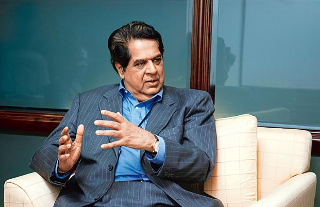[Image by Gerd Altmann from Pixabay]
There are a few things in life that we know are important to do. Yet, focused action eludes the space. Case in point: Everyone knows good diet and exercise are important for taking care of the body. How many of us do it well? Even while you are thinking about an answer, I would wager that learning can be added to the list of “I-know-it’s-important-but-I-have-other-things-to-do”.
Reasons abound. Some are genuine and many are ephemeral barriers in the mind. I sample three here.
For starters, who has the time to learn?
Have you heard of that? Honestly, we lead such busy activity-intense lives that we have to make conscious choices with our time. Stuff that used to happen, like say reflection and thinking with a vacuous stare as an accompaniment, are not only lost, they are looked down upon. Many suitors and tempting propositions demand our attention.
Oh, but I think I can get by
That’s the second one. A business leader told me a few weeks ago when asked about his worst nightmare: “I fear the day when my team thinks they can get ahead because of what they have accomplished in the past. Forget getting ahead. We won’t get by.” Currently, not being disrupted for a long time is a guarantee that a significant disruption is headed your way. It is not a question of ‘if’ but a question of ‘when’.
We live in an age of abundance of available knowledge. Often, access and familiarity with a body of work gives a false sense of competence in that body of work. It is a fallacy that knows no end!
Oh, but learning is so tough. I have other things to do
That’s a common one too. There are two parts to it. The first one where you perhaps have some dark memories of your early years in a classroom or the training programme that HR subjected you to. The second one is the awareness that learning a skill or an idea would also bring in a level of discomfort, challenge and stress. The familiar hums and rhythms of everyday work are far more comforting than the unfamiliar tune of learning something new.
These are realities of the times we live in. This is all too familiar for me. I wonder if it is for you as well.
Yet, I encounter several leaders who have understood this well and make it a point to learn and stay relevant. They lead busy lives but make the time to imbibe new skills or new ways of working and thinking. Here are three things that I see common.
1. They ensure there is continuous learning in the context of what they do. These leaders do it in the flow of their everyday work. That’s a great context to learn and grow. Over a period of time they have trained themselves to ask deep searching questions and listen deeply. Asking questions requires a dose of courage, curiosity and humility. When combined with deep listening, there is much wisdom that arrives!
2. These leaders understand that it is not a question of availability of online content anymore. In fact, the challenge is at the other end of the spectrum. There is too much of it. These leaders have a knack of finding the best resources that are there. Be it webinars, books and book summaries, blogs, research and the like. Sifting the wheat from the chaff is daunting. But these leaders have their own ways of getting better at it.
3. I love this saying: “If you are the smartest person in the room, you are in the wrong room.” The room for learning, growth and improvement exists when you are challenged by smart peers and colleagues. The connected world provides us with opportunities to access and connect. Of course, that brings with it issues of trust, relevance and meaning. But you know what, that’s common to the smart leaders who grow. They are part of communities of learning where they are respectfully challenged and their perspectives widen in the safe environs of their community. These communities extend from simple WhatsApp groups to well thought through programmes that facilitate learning. Speaking of structured sessions, here is an invitation to check out the Founding Fuel Masterclasses. The last one, on Shaping Startup Culture, probes what it really means to be customer-centric and data-driven.
As you can see, we have been busy. But guess what, we have been relearning the new ropes! It’s been a heap of learning to see all the excitement, learning and conversation that have been on.
Kavi Arasu
Featured Story
Masterclass: Shaping startup culture

(Video) ‘We are customer-driven’, ‘we are data-driven’. Those are typical refrains from companies. But are they really? It all boils down to culture. (Play Time: 83 mins)
What We Are Reading
You are not listening. Here’s why.
The New York Times | There’s an unconscious tendency to tune out people you feel close to because you think you already know what they are going to say.
The winner takes most
jamesclear.com | Why do a few people, teams, and organizations enjoy the bulk of the rewards in life? You only need to be a little bit better than the competition to secure all of the reward.
Coronadaily
A daily newsletter on Corona virus.
From Our Archives
The learned life

We live in a connected world where ignorance is not an excuse. KV Kamath is a case in point. (By Charles Assisi)


